Question & Answer Session – Little Rebels Award
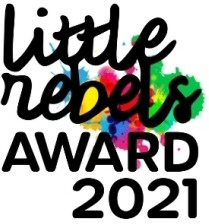
Catherine Barter and Fen Coles
1. What was the catalyst for the creation of the Little Rebels Award – The Eureka Moment?
Some years ago, Ross Bradshaw from radical indie publisher, Five Leaves Publications, blogged about a group of ‘grizzled veterans’ coming together to plot a revival of the UK’s radical book trade (http://fiveleavespublications.blogspot.com/2014/05/london-radical-bookfair-past-present.html). The Alliance of Radical Booksellers (ARB) was born soon afterwards, in 2010, swiftly followed by the inaugural adult Bread & Roses Award for Radical Publishing in 2012 and then the first London Radical Bookfair.
Just one year later, enthused by the support for this radical literature renaissance, Ross and Nik Górecki from Housmans Bookshop decided the ARB should launch a parallel book award for children and so they approached ARB member Letterbox Library, a children’s bookseller specialising in inclusive- and social-justice themed books since 1983. Letterbox Library was absolutely thrilled and set about establishing and then administering the Little Rebels Award for Radical Children’s Fiction on the ARB’s behalf. The award aimed to celebrate the best in politically thoughtful and provocative fiction for young children, referencing a small existing canon of UK radical children’s literature and, hopefully, nurturing and growing this catalogue into the future.
Five years on, the rising popularity of the Little Rebels Award was stretching Letterbox Library staff beyond capacity and they took a step back, leaving it in the secure hands of one of London’s oldest radical booksellers, Housmans Bookshop, for a year. Since then, Letterbox Library and Housmans Bookshop have joined forces to manage an award which always seems to risk swallowing up its organisers with the ever-multiplying number of submissions it attracts and the ever-growing interest from people hungry for and curious about a children’s booklist which is, perhaps, a little more eclectic and unusual than the usual front-of-house fare.
2. Why did you feel the Little Rebels Award was so necessary? Is this still true?
A quick glance at the Nielsen charts for the top-selling children’s titles will show, week on week, a cultural product dominated by a narrow range of genres and formats and by a handful of big names, whether celebrity authors or longstanding grand darlings of the literary world. This is always doubly true of the pre-teen categories (the Little Rebels Award is for literature targeted at 0–12 year olds). This isn’t to diminish those works but it does expose a truncated literary landscape and one which is very rarely centred on empowering children to think independently, to wrestle with Big Ideas and to ask questions in what feels like an increasingly turbulent world. This lack has felt especially gaping these last few years as vast global social issues have enveloped children’s lives either directly or through ubiquitous news feeds – from climate change to the rise in people fleeing their homelands, to the Me Too protests to Black Lives Matter, to the strengthened trans equality movement. We cannot doubt the impact these issues have had on children’s lives, particularly when we witness so many young people taking up placards themselves, figuratively and literally, through social media campaigns and street activism.
Children’s literature can provide children and young people with the tools they need to navigate this world and it can reflect back and commend children’s own existing activism. This is the body of work which the Little Rebels Award celebrates, bringing progressive children’s fiction to the fore. The award respects young people’s hunger for critical thinking and believes in their capacity to effect real change. In spotlighting these thoughtful, provocative and exciting narratives, the award’s shortlist also very often ends up amplifying authors and illustrators who have been traditionally marginalised or sidestepped by the industry.
3. How do you see ‘radical writing’? How does it differ from other writing for young people? How does it stand out? What criteria do you have to guide your selections? The shortlisted books are often very varied and interesting to be looked at with this perspective.
The Little Rebels Award defines radical writing as literature which is informed by anti-discriminatory concerns or which challenges stereotypes and the status quo or which builds children’s awareness of issues in society or which promotes social justice. (For the full definition, see https://littlerebels.org/submitting-a-book/.)
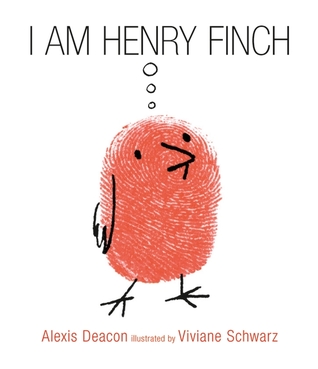
The definition of ‘radical’ is deliberately expansive, taking in, for example: existentialist musings on identity and individualism in I Am Henry Finch (2016 winner); a comedic challenge to stereotypes of Muslim families and lives: The Muslims (2018 winner, recast as the Planet Omar series); an historical fiction account of the UK’s participation in enslavement: Freedom (2019 winner); a picture books re-imagining of love and kindness as radical life-affirming acts: The Boy Who Loved Everyone (2021 winner).
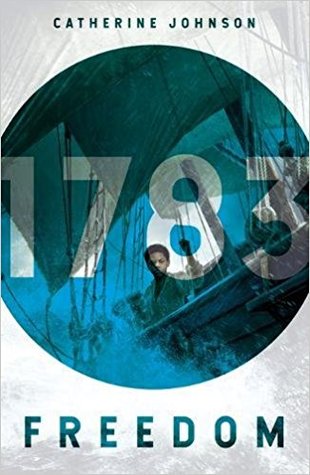
Radical writing takes risks. And does so with confidence. It doesn’t court the noise and fanfare of book charts, trends, tie-ins, merchandise. It is perhaps ‘too’ concerned with its messaging to care. Which is not to say that radical children’s works don’t have commercial appeal or don’t attract commercial names. Heavyweight authors can find their way on to the Little Rebels Award shortlists but they probably have to work much harder – or, rather, dare to write outside their usual tropes to get there. And radical children’s fiction can certainly achieve commercial success in monetary terms, attracting domestic and indeed international book deals (as our award has shown with The Muslims). But that is never its impetus or inspiration. It very often emerges from quieter, unknown voices and from smaller indie presses who rarely have a well-resourced marketing arm and increasingly can’t squeeze their titles into the ever-diminishing children’s book review space in the media. Hopefully this is where the Little Rebels Award can provide some sticking plasters, ensuring under-recognised books and voices receive their slice of the fanfare and, through that process, bringing children many more choices in what they read.
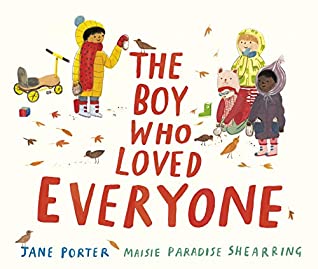
4. How does the award work?
Every year, the award organisers do a call out for submissions which closes at the end of January (for books published in the year before). Publishers are contacted directly and there are also open invites put out on social media. The shortlist tends to be announced in April and can vary in size, from five up to 10 books. We hold an awards ceremony in the summer which gives an opportunity to not only announce the winner but also to showcase the breadth of radical children’s literature through a Q&A with the shortlisted authors. The ceremony and panels used to take place as part of the wider London Radical Bookfair but have, in the last three years, comprised a separate event in order to give a louder voice to radical children’s literature in its own right. Of course in the last two years the timetable has shifted and the award ceremony has gone online – the 2021 awards ceremony took take place online in early September.
We’ve been so encouraged by the Little Rebels Award’s development over the years. It now has quite a fan base of supporters who have been enthusiastic online promoters and the interest from schools, librarians and publishers themselves has grown year on year. In 2021 147 titles were submitted to the award by a total of 46 publishers, an overall increase of 120% on the award’s inaugural year in 2012. Last year, the award received funding for the very first time from the Marxist Socialist funder, the Barry Amiel and Norman Melburn Trust, allowing us to increase the award money to £2k, levelling it up with many existing children’s book awards. Funding also enabled the creation of eye-catching social-media assets which proved absolutely critical when all the award news and the ceremony itself needed to migrate online last year. Thanks also to CILIP who dedicated seven episodes of their new YouTube service, The National Shelf Service (through which librarians make book recommendations), to the 2020 shortlist.
We would like to develop more of course – it would be wonderful to be able to fund more physical promotional materials so that, for example, libraries can easily showcase the shortlisted titles; we remain keen to make the shortlist as available to as wide a range of young readers as possible and we know that libraries are the perfect conduit for this. We’d also love to see a parallel young adult award but, again, that would require substantial funding. Any benefactors or trusts keen to be associated with messages of hope, resistance, revolution and compassion feel free to get in touch!
5. Recently we have seen a rise in an interest in what is being seen as ‘radical’. Is there a danger that the term might become too closely identified with one particular aspect of society or with a particular issue?
The term ‘radical’ is a bit scary to some people, but its etymology is the same as for the word ‘radish’ – they both come from the word for root. And radishes definitely aren’t scary! Radical thinking and radical social movements are ultimately about challenging societal norms and shaping change from the ground up. And although radical movements can exist anywhere across the political spectrum, there is a long-established tradition of left-wing radical activism and left-wing radical bookselling, and the Little Rebels Award arises out of that tradition. We proudly claim the label ‘radical’ – in fact it would be nice to think that the prize might introduce some younger readers to the idea that radicalism can be a positive thing! Many political movements that are considered fairly mainstream today were considered dangerously radical when they began – from feminism to LGBT rights to anti-racism. So we think it’s important to understand the term in that context.
When we see conservative commentators today describing social-justice movements like Black Lives Matter as ‘radical’ in an effort to imply they are dangerous or have gone too far, we think it’s all the more important to reclaim our understanding of this term. Many young people recognise that our society is deeply unequal, still mired in deeply rooted systems of oppression, and heading blithely towards ecological disaster – and they know that radical ideas are urgently needed!
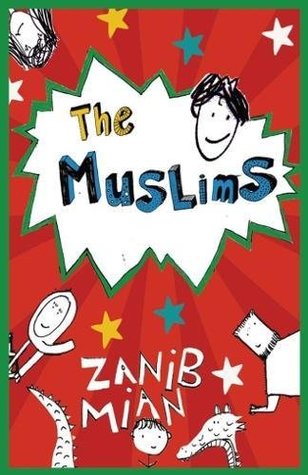
6. What do you feel – see – as a gap still to be addressed?
In the 2021 prize it was really nice to see submissions exploring things like the politics of technology and ethics of AI. Children are growing up immersed in social media and digital culture so it’s brilliant to see stories which empower young people to think critically about those things, without delivering a moral lecture. It can be difficult in the slow-moving world of publishing to keep pace with these topics, so gaps will always be arising there.
And there’s definitely still a gap for really radically anti-capitalist stories! Environmental fiction is a good example. There are lovely books that explore the small ways people can make a difference in the world, but not so many that expand this vision beyond individual behaviour. It would be nice to see stories that dare to go a bit bigger – to really open up questions about the massive economic and political systems that have enabled the climate catastrophe. A lot of children’s books introduce the idea that climate change is a Bad Thing, but sometimes it’s presented as if it’s a naturally occurring phenomenon – we’d love to see books that are a bit more radical in examining how we got here; stories that really encourage children to question the big foundational myths of our society – e.g. that economic growth is always a good thing. Smash capitalism!
And why not some anarchist stories too?? Children’s books often depict leaders – kings, queens, politicians – who are either dictatorial or benevolent – but why not tell stories that do away with the entire idea of leaders? Many adults can’t imagine a leaderless society. But children have much better imaginations! And they are much better seeing things that adults never think about, and asking why?
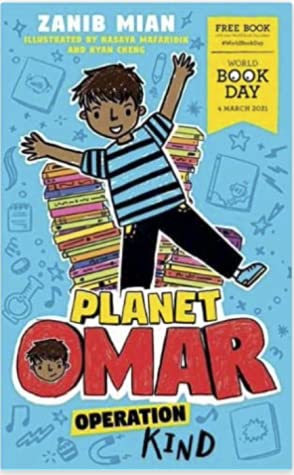
8. What are you most proud of?
The award’s proudest moment was probably Zanib Mian’s win with The Muslims, Sweet Apple Publishers, in 2018. The Muslims was published by Zanib Mian’s own small publishing house. After it took the podium place at the Little Rebels Award, both Hachette UK and Penguin Random House USA offered her a series contract. Hachette recast The Muslims as the Planet Omar series in April 2019; Penguin Random USA followed in February 2020. The series now has four titles to its name and Planet Omar: Operation Kind was a World Book Day title just this year. Every time Zanib Mian receives yet another accolade we feel privileged and honoured to have witnessed her very earliest win. And, we are filled with joy that she helped demonstrate that radical children’s fiction can be really very ‘mainstream’ . . . even stratospheric.
Works cited
Deacon, Alexis (illus. Viviane Schwarz) (2015) I Am Henry Finch. London: Walker Books.
Johnson, Catherine (2018) Freedom. London: Scholastic.
Mian, Zanib (2018) The Muslims. Wembley: Sweet Apple Publishers.
–– (2021) Planet Omar: Operation Kind. London: Hodder Children’s Books.
Porter, Jane (illus. Maisie Paradise Shearring) (2019) The Boy Who Loved Everyone. London: Walker Books.
Catherine Barter is co-manager of radical booksellers Housmans and co-coordinator, with Letterbox Library, of the Little Rebels Award. She is also a young adult author: her novels Troublemakers and We Played With Fire are published by Andersen Press. Fen Coles is a co-director at Letterbox Library, a 36-year-old, not-for-profit children’s booksellers specialising in equality, diversity and inclusion. She also co-runs the Little Rebels Award for Radical Children’s Fiction and is on the Steering Committee for the CLPE’s (Centre for Literacy in Primary Education) Reflecting Realities Project. She has a PhD (2005) and an MA (1995) in Interdisciplinary Women’s Studies. Before joining Letterbox Library in 2005, Fen worked for over 10 years in the charity sector within several women’s and LGBTQ+ rights organisations and was a tutor in Lesbian Cultural Studies at Warwick University.
